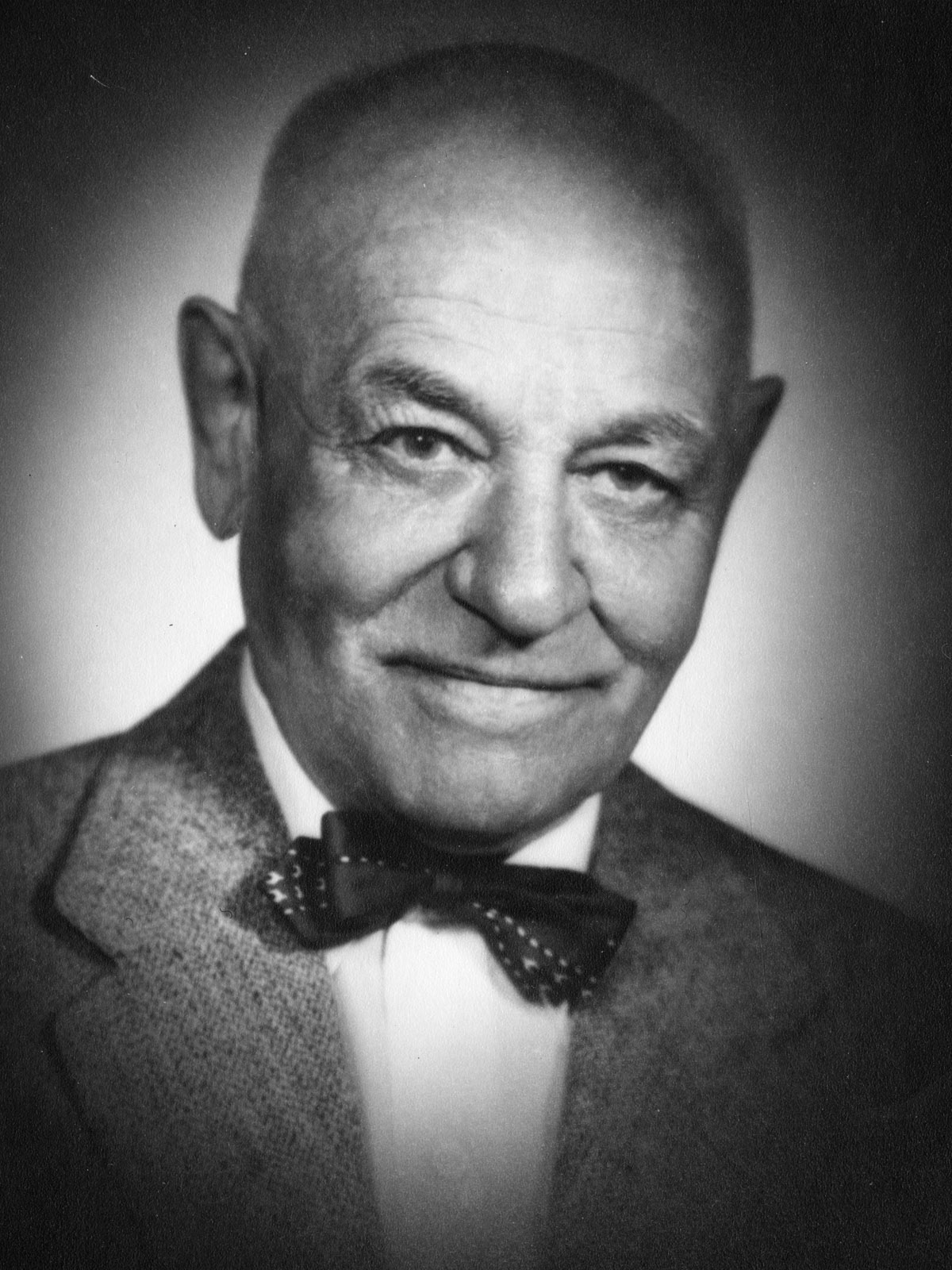
Cornelius Haskell had forty years of successful, progressive farming, a modern farm home and four children reared on the farm. He was a strong supporter of the Agricultural Extension Program, the agricultural research program (particularly at the Northeast Experiment Station) and of educational opportunities for Nebraska rural youth. A man of strong character, high ideals, and a rugged pioneer spirit, he set a fine example for the younger generation.
Mr. Haskell was born at Wakefield, Nebraska where his parents were in the banking business, an occupation which he, himself, followed for a part of his life. He attended the Wakefield Elementary School but went east for his high school work. In 1908 he graduated from Yale University with a Liberal Arts Degree.
He was employed by a Gregory, South Dakota bank after graduation. His responsibilities increased until in 1917, when he enlisted in the Armed Forces, he was the vice-president.
While in the Service he had the rank of Captain. Receiving his discharge in 1919 he again worked in a bank. From 1919-1923 he had the position of vice-president of the Sioux City Livestock National Bank of Sioux City.
Farming always seemed to be an occupation and a way of life that appealed to Mr. Haskell and in 1923 he moved to a 320 acre farm in Cedar County where he and Mrs. Haskell still reside.
In the fall of 1959 we visited at his farm and found that he had mastered the obstacles current to farming between 1923 and 1959, which included drouth, floods, blizzards, depressions, poor prices for farm commodities, insects, and weeds. His farm operation included a good diversified plan including both crops and livestock. A herd of breeding cows, which utilized the roughage on the farm, and a feeding program which included cattle, sheep, and hogs turned the grain into good red meat to be marketed for human consumption. The hog program included farrowing of both spring and fall litters. Sows were maintained as long as they were good producers. His sheep program was very good and he acted as host for the Extension Service Wool and Lamb meetings.
In 1957 the farmers of Northeast Nebraska, along with the Extension Service and College of Agriculture, were trying to obtain enough money to establish an experiment farm in the area. Mr. Haskell gave 320 acres of land to the University of Nebraska for the Northeast Nebraska Experiment Farm. This is a very good farm located two and one-half miles east of concord, in Cedar County. At the same time there was established a Loan Fund in the amount of $25,000, known as the Haskell Loan Fund, to be used by students from Northeast Nebraska majoring in agriculture or engineering.
Mr. Haskell offered, in 1959, to match funds raised for the Experiment Farm up to the amount of $25,000. $9,000 was raised by selling memberships and he matched this amount making a sum of $18,000, which is to be used for an office and laboratory building. Plans for this building are now complete and it is hoped that work may be started on it early in 1963.
This, which I found recently in a magazine, I believe applies to our friend, Mr. C.D. Haskell.
Can You Pass This Leadership Test?
A leader should have a good sense of humor, the ability to listen to people, and a real acceptance of the other fellow’s point of view. Sometimes a difficult problem can be handled with a hearty laugh.
Calmness, security, poise, and a positive look on life, help give effective leadership. This does not mean an “everything lovely” approach, but a firm feeling that the group can do a job. Good leaders have an eagerness to learn and to do a good job. A desire to grow with their work. A person with a closed mind will have difficulty.
The wise leader will keep his troubles to himself. Of course, he will share his worries and doubts, but he will never burden others with individual problems.
It has been said a leader gets back of persons rather than back at persons; a leader is always on tap but never on top of persons; and finally, a leader has power with rather than over other people.
I express gratitude for all the residents of northeast Nebraska when I say, “Thanks to C.D. Haskell and his good wife.”
